|
1935
The winner is listed first, in CAPITAL letters.
|
Best Picture
|
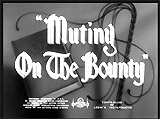
|
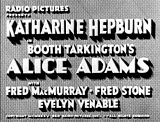
|
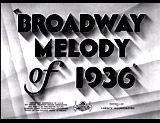
|
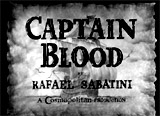
|

|
|
MUTINY ON THE BOUNTY
(1935)
|
Alice Adams (1935)
|
Broadway Melody of 1936 (1935)
|
Captain Blood (1935)
|
David Copperfield (1935, UK)
|
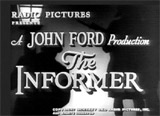
|
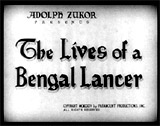
|
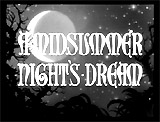
|
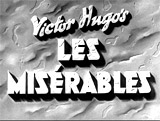
|
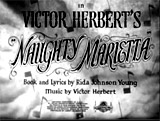
|
|
The Informer (1935)
|
The Lives of a Bengal Lancer (1935)
|
A Midsummer Night's Dream (1935)
|
Les Misérables (1935)
|
Naughty Marietta (1935)
|
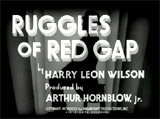
|
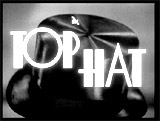
|
|
|
|
|
Ruggles of Red Gap (1935)
|
 Top
Hat (1935) Top
Hat (1935)
|
|
|
|
Actor:
VICTOR MCLAGLEN in "The Informer", Clark Gable in "Mutiny
on the Bounty", Charles Laughton in "Mutiny
on the Bounty", Franchot Tone in "Mutiny
on the Bounty"
Actress:
BETTE DAVIS in "Dangerous", Elisabeth Bergner in "Escape
Me Never", Claudette Colbert in "Private Worlds",
Katharine Hepburn in "Alice Adams",
Miriam Hopkins in "Becky Sharp", Merle Oberon in "The
Dark Angel"
Director:
JOHN FORD for "The Informer", Michael Curtiz for "Captain
Blood", Henry Hathaway for "The Lives of a Bengal Lancer",
Frank Lloyd for "Mutiny on the Bounty"
 1935
was the first year that the gold statuettes were officially
dubbed "Oscars."
(Bette Davis insisted that she was the first to give the
award its name in honor of her first husband Harmon Oscar Nelson.)
This was the last year that write-ins were allowed by the Academy.
(Cinematographer Hal Mohr became the first (and only)
write-in nominee to win an Oscar.) And Price Waterhouse was hired
to tabulate ballots for the first time this year. 1935
was the first year that the gold statuettes were officially
dubbed "Oscars."
(Bette Davis insisted that she was the first to give the
award its name in honor of her first husband Harmon Oscar Nelson.)
This was the last year that write-ins were allowed by the Academy.
(Cinematographer Hal Mohr became the first (and only)
write-in nominee to win an Oscar.) And Price Waterhouse was hired
to tabulate ballots for the first time this year.
This year was also marked by MGM's studio campaign
in press ads - the first of its kind - for one of its
films, director Clarence Brown's coming-of-age comedy Ah,
Wilderness! that was adapted from Eugene O'Neill's sole
comedy - the effort proved unsuccessful since the film had
zero nominations.
And this was the first year for a new
awards category, Best Dance Direction (Dave Gould won for "I've
Got a Feeling You're Fooling"
in Broadway Melody of 1936 and "Straw Hat" in Folies
Bergere). This category would last for only three years,
through 1937. Members of the Directors Guild successfully lobbied
the Academy for elimination of the category, arguing that the
term "direction" should only apply to the director
of a film, not the dance director.
Some of the greatest classic films of all time
were among the twelve Oscar nominees for Best Picture. The
Best Picture winner was the expensive (the film was the costliest
film of the year - budgeted at about $2 million) and unequaled
earliest version of Mutiny on the Bounty -
a film with eight nominations and only one win. [It was the
last of the Best Picture winners that didn't receive any other
Oscars. The other two were The Broadway Melody (1928/29) and Grand
Hotel (1931/32).]
The adventure classic from director Frank Lloyd
was based on Charles Nordoff's and James Hall's trilogy, and
the actual historical case of the Tahiti-bound British naval
vessel HMS Bounty, that suffered a famous mutiny in
1787 against its iron-fisted, sadistic commander Captain Bligh
(Charles Laughton). It was an MGM showcase (the second Irving
Thalberg production to win Best Picture), featuring an immortal
on-screen villain, on-location shooting, and acting nominations
for all its star players. And it featured the Best Actor Oscar
winner from a year earlier - Clark Gable as the Bounty's mate
Fletcher Christian and leader of the mutiny.
The other Best Picture nominees included two
adventure films - classic 30s swashbucklers, three musicals,
and four adaptations of classics:
- director Michael Curtiz' Captain Blood (with
two nominations and no wins) starring 26 year-old newcomer
Errol Flynn as the colorful pirate Peter Blood
- director Henry Hathaway's and Paramount's The
Lives of a Bengal Lancer (with seven nominations and
one win, for its Assistant Directors Paul Wing and Clem
Beauchamp) about three British Empire Lancers stationed
in NW India who encounter a revolution against colonial
rule - the category of Assistant Director was discontinued after
1937!
- director Mark Sandrich's
 Top
Hat (with four nominations and no wins), one
of the best Astaire/Rogers musicals ever made Top
Hat (with four nominations and no wins), one
of the best Astaire/Rogers musicals ever made
- director W. S. Van Dyke's Naughty Marietta (with
two nominations and one win - Sound Recording), the first
film matching up Jeanette MacDonald and Nelson Eddy
- MGM's musical comedy Broadway Melody of
1936 (with three nominations and one win - Best Dance
Direction for David Gould), the second film in the series
(after the original 1928/29 film), and one of the few sequels
to be nominated for Best Picture; with leads Robert Taylor
and Eleanor Powell, and supporting characters Jack Benny
and June Knight
- director George Cukor's (and MGM's) superior
adaptation of the Charles Dickens classic David Copperfield (with
three nominations and no wins) with W.C. Fields as Mr. Micawber
- director Max Reinhardt's version of the Shakespeare
classic A Midsummer Night's Dream (with three nominations
and two wins - Best Cinematography for Hal Mohr as a write-in
candidate, and Best Film Editing ) with scores of Warner
Bros' stars and Olivia de Havilland in her first film role
- the best of all versions of Victor Hugo's
novel Les Miserables (with four nominations and no
wins), about a petty thief named Jean Valjean in 18th century
France, with Gregg Toland's cinematography
- Leo McCarey's Ruggles of Red Gap (with
one nomination and no wins), a Preston Sturges political
comedy starring Charles Laughton as a British manservant
on an American Wild West ranch
- John Ford's political melodrama The Informer (with
six nominations and four wins - Best Actor (Victor McLaglen),
Best Director (Ford's first of four Best Director
Oscars), Best Screenplay (Dudley Nichols), Best Score (Max
Steiner's first of three Best Score Oscars) - based
on Liam O'Flaherty's novel about the 1922 Irish Sinn Fein
Rebellion and a hard-drinking Dublin informer pursued after
betraying his leader
- director George Stevens' Alice
Adams (with two nominations and no wins), based
on the classic Booth Tarkington novel about a poor Midwestern
girl who falls in love with a socially-prominent, upper-class
man
Director Henry Hathaway received his only Best
Director nomination in his career for The Lives of a Bengal
Lancer. The Best Picture's director, Frank Lloyd, lost
in the Best Director category. John Ford's win as Best Director
for The Informer was the first of his record
four Oscars for directing - but amazingly, he never received
a Best Director Oscar for a western, his most characteristic
genre. [His other Best Director awards were for:  The
Grapes of Wrath (1940), How
Green Was My Valley (1941), and The
Grapes of Wrath (1940), How
Green Was My Valley (1941), and  The
Quiet Man (1952).] The
Quiet Man (1952).]
Three of the four nominees for Best Actor appeared
in MGM's Best Picture film Mutiny on
the Bounty: [Mutiny on the Bounty was
the first film to have three acting nominations, and
the first film to have three co-performers competing against
each other in the same category - as Best Actor]:
- Clark Gable (with his second nomination) as
Fletcher Christian, the courageous, dashing and rebellious
First Mate
- Charles Laughton (with his second nomination)
as the hateful, ruthless and tyrannical Captain William Bligh
- Franchot Tone (with his sole career nomination)
as the idealistic, decent loyal midshipman Roger Byam who
returned to England and was court-martialed
All three Best Actor nominations lost to Victor
McLaglen's greatest performance (with his first nomination
and only Oscar) as Gypo Nolan in The Informer,
a boasting, brawling, drunken Irish braggart known as "The
Beloved Brute" who betrays his Irish Republican Army pal
to the British police for a 20-pound reward. He became the second English
actor to win an Oscar, following after Charles Laughton's win
for The Private Life of Henry VIII (1933). [Note: McLaglen's
role set the standard for many future alcoholic character honorees
in the acting category. The award boosted the film's financial
failings - and made it the first film to substantially
benefit from an Oscar.] Dudley Nichols, the film's screenwriter,
became the first winner to refuse his Oscar award on
political grounds, during a union boycott that was being held
during the awards ceremony.
[Charles Laughton was the second performer
to appear in three Best Picture-nominated films in the same year
- he also starred in Mutiny on the
Bounty, Les Miserables and Ruggles of Red
Gap. This feat was first accomplished by Claudette Colbert
in 1934, and would be repeated by Thomas Mitchell in 1939
and John C. Reilly in 2002.]
Because of a tie, there were six best actress
nominees for the only time in Oscar history. To many
critics, Bette Davis (with her first nomination) was compensated
for her loss the previous year (as an unofficial write-in candidate)
with her first Best Actress award in director Alfred E. Green's Dangerous (the
film's sole nomination). Her winning role was as Joyce Heath
- a self-centered, willful, alcoholic, neurotic, self-destructive
ex-Broadway actress who is kept off the bottle during her comeback
by an admiring young architect (Franchot Tone).
The other Best Actress nominees were:
- Miriam Hopkins (with her sole unsuccessful
career nomination) for her role as the title character in
an adaptation of Thackeray's novel Vanity Fair by
director Rouben Mamoulian, Becky Sharp (the film's
sole nomination) - the first 3-color Technicolor film
- Merle Oberon (with her sole unsuccessful career
nomination) as young heroine Kitty Vane in director Sidney
Franklin's The Dark Angel (with three nominations
and one win - Best Interior Decoration)
- Elisabeth Bergner (with her sole nomination)
as unwed mother Gemma Jones in the melodramatic Escape
Me Never (the film's sole nomination - it was directed
by Bergner's husband Paul Czinner)
- the previous award winner Claudette Colbert
(with her second consecutive nomination) as psychiatrist
Dr. Jane Everest in Private Worlds (the film's sole
nomination)
- the previous year's award winner Katharine
Hepburn with her great performance (and her second nomination)
in the title role as the social-climbing Alice
Adams
[Both Colbert and Hepburn had won awards for
acting in the past, and since no one to this point had won
two acting awards, it was not unusual that Davis won. None
of the other first-time nominees were of her acting caliber.]
Walt Disney again received a Short Subject: Cartoon
award, his fourth consecutive honor in this category,
for Three Orphan Kittens, and a Special Award was given
to silent film director D.W. Griffith for his pioneering efforts
in pre-Academy Award films ( The
Birth Of A Nation (1915), The
Birth Of A Nation (1915),  Intolerance
(1916), Broken Blossoms (1919), Way
Down East (1920), and Orphans of the Storm (1921/22).
And film legend D.W. Griffith was honored with a Special Award "for
his distinguished creative achievements as director and producer
and his invaluable initiative and lasting contributions to
the progress of the motion-picture arts." Intolerance
(1916), Broken Blossoms (1919), Way
Down East (1920), and Orphans of the Storm (1921/22).
And film legend D.W. Griffith was honored with a Special Award "for
his distinguished creative achievements as director and producer
and his invaluable initiative and lasting contributions to
the progress of the motion-picture arts."
Dudley Nichols was the first Oscar winner
to refuse an Academy Award - for his screenplay credit on The
Informer (1935). He was boycotting the awards as a member
of the Screen Writers Guild. (Two years later, after the Academy
accepted the guilds and ended its support for union-busting
activities, Nichols accepted his award.)
Oscar Snubs and Omissions:
There were major snubs and missed nominations
for these films in 1935:
Either Hermes Pan or original choreographer-director
Busby Berkeley (who never won an Academy Award) should have
won the Best Dance Director Award for, respectively, "Top
Hat" from  Top
Hat, or for two nominated numbers (the show-stopping
finale of "Lullaby of Broadway" - one of the greatest
dance numbers in Hollywood film history - and "The Words
Are in My Heart" - with fifty-six grand pianos coming
to life in an art-deco kaleidoscope) in Gold Diggers of
1935. This was Berkeley's debut film as a solo director. Top
Hat, or for two nominated numbers (the show-stopping
finale of "Lullaby of Broadway" - one of the greatest
dance numbers in Hollywood film history - and "The Words
Are in My Heart" - with fifty-six grand pianos coming
to life in an art-deco kaleidoscope) in Gold Diggers of
1935. This was Berkeley's debut film as a solo director.
|
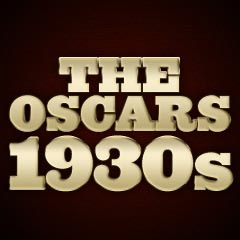
![]()